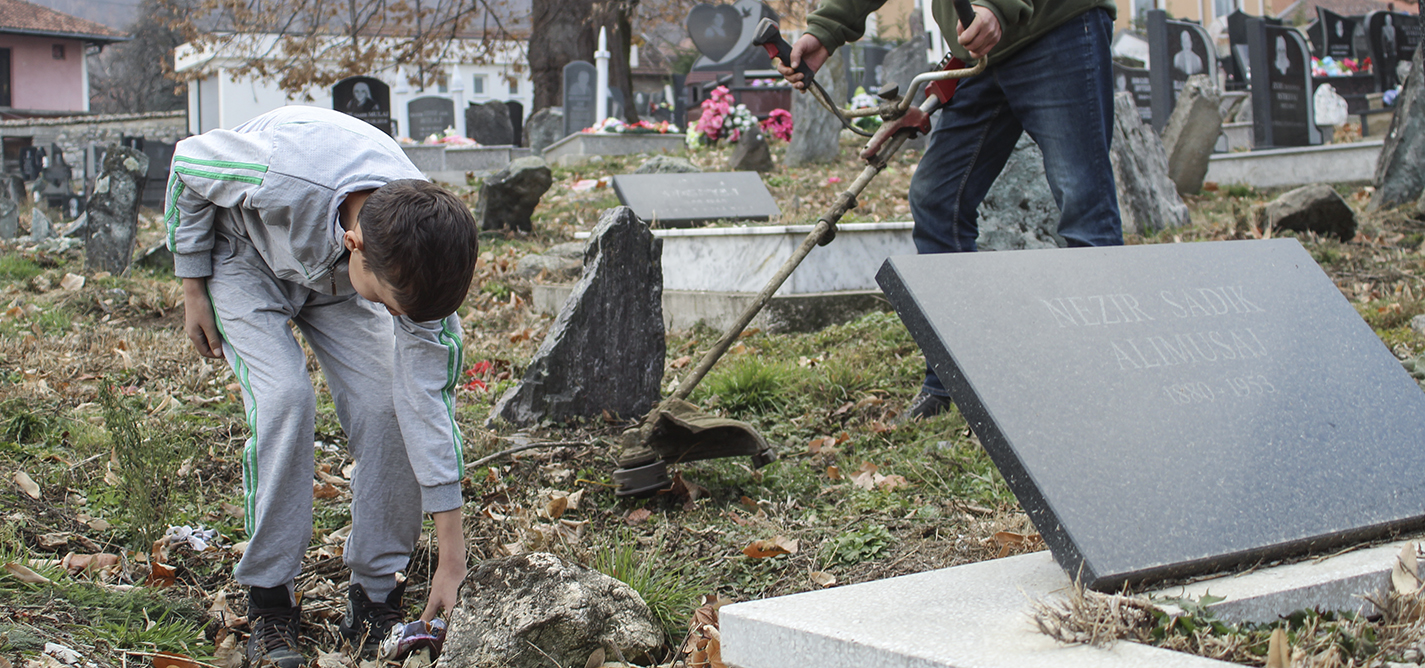
Extreme poverty forces children to be bread-winners
Vicious cycle of childhood poverty in Kosovo robs children of their rights.
|10.12.2018
|
He lost his life without even having received his first salary, which would have been 200 euros a month.
“We are all guilty,” says Rushit, referring to Seldin's death. “But no one is more [responsible] than the harsh economic situation in Kosovo.”
Riza Murati, who heads a section within Kosovo Police’s Directorate for Investigation of Trafficking with Human Beings, says that those living in poverty are particularly susceptible to trafficking and they are often reluctant to report it.
Mecini says that one of the contributing factors affecting the circumstances of many young women is the denial of property inheritance rights.
“My son sees me getting tired and understands our living conditions, so he is forced to come with me. He told me, ‘I’ll come help a little.’"
Muharrem AlimehajNakia says she takes the children with her begging, because she hopes that people will be more merciful when they see her out with small children.

Fjolla Hajrizaj
Fjolla Hajrizaj is nearing the end of her BA in journalism, at the University of Prishtina. She has previously worked at KosovaLive, where she produced video stories on topics including education, art, culture, equality and the environment. Fjolla is a K2.0 Human Rights Journalism Fellowship program fellow (2018 cycle).
This story was originally written in Albanian.